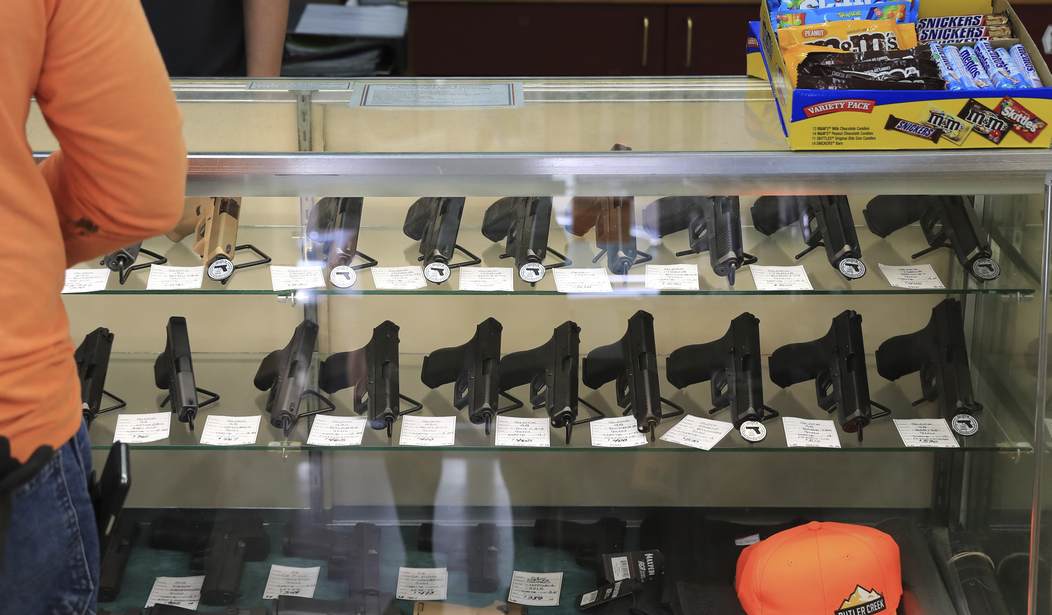A few years ago, gun control studies got cooked when a Bloomberg columnist sat down with Reason to talk about why those studies are absolute garbage. Cam wrote about it at the time, and it's probably one of the most important posts on this site. We saw numerous examples of just why these studies are trash, and, since then, there haven't exactly been a ton of studies improving the situation.
Instead, the media has ignored the problems and just keeps parroting the anti-gun talking points.
Now, they have a new reason to do it once again.
Firearms have risen to become the leading cause of death among children and teens in the United States in recent years, but a new study joins a growing set of evidence that gun laws can make a difference.
A landmark Supreme Court case in 2010 – McDonald v. Chicago – ruled that the Second Amendment applies to local governments, leading to a flurry of new laws and a deeper divide in state policy around firearms, with some states tightening restrictions and others weakening gun-related laws.
Yes, McDonald did rule the Second Amendment applies not just to the federal government, but it dealt with the fact that Chicago had effectively banned handgun ownership by requiring them to be registered but refused all registration.
That's all it did beyond reaffirming the Heller finding that the Second Amendment is an individual right.
Sorry, my pedantic butt had to call that out, especially with what's coming now.
Moving on...
Over the next 13 years, thousands more children died from firearm violence than earlier trends would have predicted – and all of the increase happened in groups of states that had more permissive gun laws, according to a study published Monday in JAMA Pediatrics.
Researchers grouped states into three categories based on firearm ownership and use policies – most permissive, permissive and strict – using a composite of policy scorecards from nonprofit advocacy groups: Brady, Everytown for Gun Safety and the Giffords Law Center.
They found significant increases in the number of children who died from guns in states with looser laws: more than 6,000 additional deaths in states with the most permissive laws between 2011 and 2023, and more than 1,400 additional deaths in states considered to have permissive laws.
Half of the states considered to have strict firearm laws – California, Maryland, New York, and Rhode Island – saw a decrease in pediatric firearm mortality in that time.
Overall, there was an increase in child deaths from firearm-related homicides and an even greater increase in child deaths from firearm-related suicides, the study found. But pediatric mortality from others causes – including other suicides – did not increase in this time.
Now, don't get me wrong, this is interesting, and the numbers seem to be what they are.
There's just a problem with this, as per usual.
In particular, this study didn't seem to attempt to control for any other potential factors, such as economics or the overall crime rate. Poverty has long been known to co-exist with violent crime, so it seems kind of silly not to account for that if you're really interested in trying to determine if the laws, in and of themselves, played a role.
What's more, while they're making a pretty bold claim here, they don't actually know as much as they might want readers to think.
The new research didn’t identify the specific types of gun policy that were the most harmful or most protective, but earlier research has suggested that background checks, secure storage laws and policies that otherwise prevent child access to guns are associated with lower pediatric firearm mortality.
Now, ignore what the earlier "research" suggested because those so-called studies have no bearing on this one.
Note that they don't do anything to look at particular bits of legislation at all.
That's because they just looked at what gun control groups said. They used their determination on which states were permissive and which weren't. They honestly don't know anything beyond that.
Maybe it's just me, but that seems pretty lazy.
No gun control group is an unbiased reporting agency. They all have axes to grind and can determine some states are really good because they passed certain gun control laws, but not others, based on that entity's priorities.
But really, that's a quibble to me.
What bothers me is that these so-called researchers just made a broad but largely useless statement that is nothing but correlation, and they declare it causation. Their starting line was a Supreme Court decision that, while a landmark case, simply said that the Second Amendment applied beyond federal law. Since states already have and continue to have gun control laws, little has changed because of it beyond Chicago's attempted handgun ban.
But the whole correlation and causation thing is basic first-year science stuff. You need more than a correlation to determine causation.
Yet causation should cause correlation, and since the Bruen decision, when guns became more common on our streets, the homicide rate has declined. That alone suggests there's a whole lot of stuff they're not considering.








Join the conversation as a VIP Member